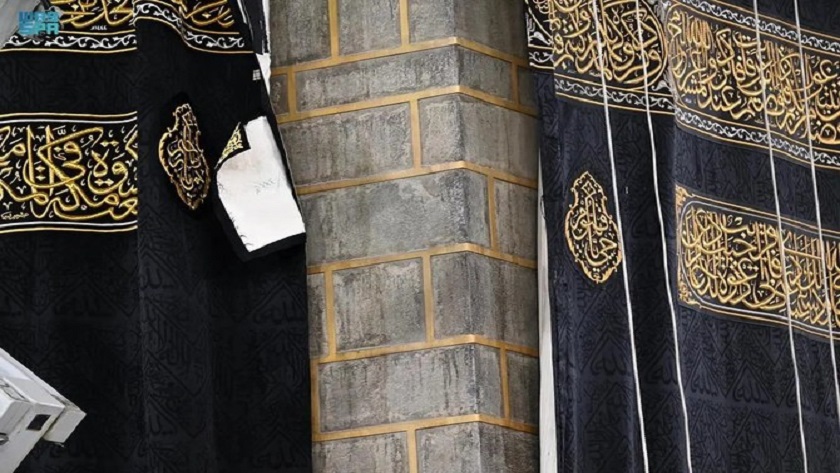Historic Participation: Female Employees Play Pivotal Role in the Changing of the Kaaba’s Kiswa
In a remarkable turn of events marked by progress and historical significance, female employees of the General Authority for the Care of the Two Holy Mosques took part in the ceremonial changing of the Kaaba’s kiswa this past Sunday. Traditionally an event dominated by male participants, this year saw women involved in crucial preparatory tasks, symbolizing a significant milestone in gender inclusion within one of Islam’s holiest rituals.
The kiswa, a black cloth lavishly adorned with gold and silver threads, is replaced annually in a ceremonial event held after the Hajj pilgrimage season and at the dawn of the Islamic New Year. The old kiswa is meticulously removed and replaced with a new one, which is secured around the corners and atop the roof of the Kaaba, the sacred cube-shaped structure at the center of the Grand Mosque in Makkah.
During this year’s ceremony, female employees were entrusted with carrying components of the kiswa and subsequently handing them over to their male counterparts, who then transferred the sacred cloth to Makkah’s Grand Mosque for installation. Although their roles were limited to the preparatory stages, the inclusion of women marks the first recorded instance of female participation in this revered tradition.
This development is a nod to the broader changes happening within the Kingdom of Saudi Arabia. Under the Vision 2030 reform plan, spearheaded by Crown Prince Mohammed bin Salman, there has been a vigorous push towards promoting women’s roles across various sectors, including in traditionally male-dominated fields. The Vision 2030 agenda aims to diversify the economy beyond oil dependency and modernize the nation’s socio-economic landscape, including enhancing gender diversity in the workplace.
Recent years have witnessed a series of transformative policies aimed at increasing women’s participation in the workforce. From allowing women to drive to opening up employment opportunities in fields like aviation, law, and entertainment, these reforms are reshaping the fabric of Saudi society.
The involvement of women in the kiswa ceremony is thus both a symbolic and practical representation of these sweeping changes. It illustrates not just a shift in social norms, but also a deeper acceptance of women’s capabilities in contributing to both religious and societal progress.
For more information about the General Authority for the Care of the Two Holy Mosques, please visit their official website.
As the Kingdom continues its journey towards greater inclusivity, the historic participation of women in this sacred event epitomizes a growing recognition of gender equality, emphasizing that the empowerment of women is integral to the nation’s future success.
